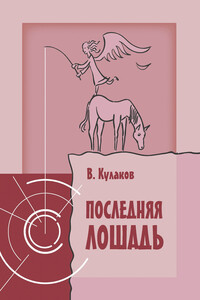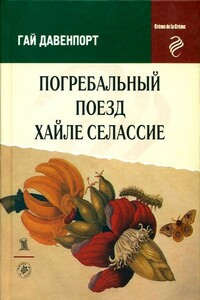36 Arguments for the Existence of God - [41]
“I know this is going to sound naïve to you, from your point of view and all, but I don’t want to be a genius,” Cass confessed to Gideon one night after a few pitchers. “All I really want is to be able to understand the geniuses. Understand a little bit of what they say when they talk back and forth across the millennia to each other. I’d be happy if I could just follow the ideas of men like Hegel and Goethe and Jonas Elijah Klapper.”
They were in The View from Nowhere, just Gideon and Cass, though some of the others were supposed to join them after midnight. The seminar had closed ranks now. All of the outsiders from the other departments had dropped out, so it was just Klapper’s seven. In addition to Gideon and Cass, there were Nathan Suarez, Miriam Chan, Ezra Lull, Zack Kreiser, and Joel Lebow. The mean number of years they’d spent as graduate students, averaging in Gideon’s 12 and Cass’s 0, was 7.2. But attendance at any seminar taught by Jonas Elijah Klapper was a tacit requirement that nobody had ever thought to challenge. After all, why would one? Miriam had shown up at the seminar last week with a raging fever, which hadn’t surprised anyone, though Professor Klapper had firmly ordered her home, reminding her that there was no need for her to expose others to her misbehaving microbes.
“To bed, Miss Ching, with pots of tea, and no reading to overly tax your strength. A little Robert Frost perhaps. Whitman, in moderation, when you’re feeling more robust.”
Cass had reacted to the preoccupation with genius in his own way. He had taken out books on famous minds, as interested in their lives as in their ideas (maybe even a little more). Right now he was reading E. T. Bell’s Men of Mathematics, which was the best yet, even though it had real mathematics to slow him down. Some of these people sounded as if they had to be changelings, non-human visitors from some other sphere, with powers so prodigious they burst the boundaries of developmental psychology, lisping out profundities while other children were playing with their toes. Gauss, for example, who struck Cass as the most amazing one yet, which was no wonder, since, according to Bell, Carl Friedrich Gauss was one of the three greatest mathematicians of all recorded history, the other two being Archimedes of Syracuse and Sir Isaac Newton.
Gauss was German, born in 1777, and the stories that Bell told about him defied belief. His father couldn’t appreciate what his son was, and if he’d had his way the prodigy would have become a gardener or a bricklayer like him. His mother, though semi-literate, had been his protector when he was young and vulnerable, making sure that he was able to get schooling. Gauss’s genius had shown itself when he was barely out of infancy.
“People who witnessed it said it was like something otherworldly,” Cass said, quoting Bell.
Gideon had patiently heard out Cass about the child Gauss, including the story involving the stern schoolmaster who, out of mean-spirited spite, had given his pupils the exercise of adding up all the integers from 1 to 100. Within seconds Gauss had returned the answer, seeing, in a flash, that adding pairs from opposite ends of the list gave the same sum: 1 + 100 = 101, and 2 + 99 = 101, and 3 + 98 = 101, so all he had to do was take 101 fifty times and he had the answer.
“The children were supposed to work out the solution on a slate and then put it on the teacher’s desk, piled one on top of the other. Gauss, who was ten, wrote it down as soon as the teacher got the words out and said in his peasant dialect, ‘Ligget se,’ ‘There it lies.’ Of course, the teacher thought the kid was a lazy lout. After all the slates got piled on top, hours later, all of the answers wrong, the teacher found Gauss’s with just the number 5,050. And then he realized what he had.”
Gideon nodded. “I see why you find these stories interesting, from the point of view of psychological curiosities, but they just don’t engage me the way literary genius does. It’s not even genius in the same sense. These computational tricks don’t indicate a special order of soul. They’re like machines, these kids. Sometimes they’re even functionally retarded.”
“Gauss wasn’t an idiot savant. These aren’t little computing tricks. Gauss was comparable to Goethe.”
“I don’t accept that. Gauss’s talents were from the brain, not the soul. I’m not saying he was an asshole-I don’t know anything about the guy-but theoretically he could have been, and that’s the point. He could have been a total asshole when it came to all human concerns and just had some single part of his brain overdeveloped. Isaac Newton was simple-minded to the point of semi-retarded when it came to spiritual matters. He used his cerebral calculating machine to calculate the date of the end of days. They’re the Gump Worsleys of thinking.”
“Who’s Gump Worsley?”
“He was a goalie for the Canadiens.” Gideon was from Montreal, and if the names he bandied didn’t come from the canon, chances were they came from the Canadiens. “He was this short, pudgy guy, looked like he’d keel over if you asked him to drop down and do twenty, with a hanging beer belly and a goofy mug of a face. He never played with a mask. He said his face was his mask. And he threw up before every game, his good-luck ritual. But he was a great goalie. At his height, in 1968, he went undefeated in the playoffs with eleven straight wins.”

В книге рассказывается история главного героя, который сталкивается с различными проблемами и препятствиями на протяжении всего своего путешествия. По пути он встречает множество второстепенных персонажей, которые играют важные роли в истории. Благодаря опыту главного героя книга исследует такие темы, как любовь, потеря, надежда и стойкость. По мере того, как главный герой преодолевает свои трудности, он усваивает ценные уроки жизни и растет как личность.

В городе появляется новое лицо: загадочный белый человек. Пейл Арсин — альбинос. Люди относятся к нему настороженно. Его появление совпадает с убийством девочки. В Приюте уже много лет не происходило ничего подобного, и Пейлу нужно убедить целый город, что цвет волос и кожи не делает человека преступником. Роман «Белый человек» — история о толерантности, отношении к меньшинствам и социальной справедливости. Категорически не рекомендуется впечатлительным читателям и любителям счастливых финалов.

Кто продал искромсанный холст за три миллиона фунтов? Кто использовал мертвых зайцев и живых койотов в качестве материала для своих перформансов? Кто нарушил покой жителей уральского города, устроив у них под окнами новую культурную столицу России? Не знаете? Послушайте, да вы вообще ничего не знаете о современном искусстве! Эта книга даст вам возможность ликвидировать столь досадный пробел. Титанические аферы, шизофренические проекты, картины ада, а также блестящая лекция о том, куда же за сто лет приплыл пароход современности, – в сатирической дьяволиаде, написанной очень серьезным профессором-филологом. А началось все с того, что ясным мартовским утром 2009 года в тихий город Прыжовск прибыл голубоглазый галерист Кондрат Евсеевич Синькин, а за ним потянулись и лучшие силы актуального искусства.

Семейная драма, написанная жестко, откровенно, безвыходно, заставляющая вспомнить кинематограф Бергмана. Мужчина слишком молод и занимается карьерой, а женщина отчаянно хочет детей и уже томится этим желанием, уже разрушает их союз. Наконец любимый решается: боится потерять ее. И когда всё (но совсем непросто) получается, рождаются близнецы – раньше срока. Жизнь семьи, полная напряженного ожидания и измученных надежд, продолжается в больнице. Пока не случается страшное… Это пронзительная и откровенная книга о счастье – и бесконечности боли, и неотменимости вины.

Книга, которую вы держите в руках – о Любви, о величии человеческого духа, о самоотверженности в минуту опасности и о многом другом, что реально существует в нашей жизни. Читателей ждёт встреча с удивительным миром цирка, его жизнью, людьми, бытом. Писатель использовал рисунки с натуры. Здесь нет выдумки, а если и есть, то совсем немного. «Последняя лошадь» является своеобразным продолжением ранее написанной повести «Сердце в опилках». Действие происходит в конце восьмидесятых годов прошлого столетия. Основными героями повествования снова будут Пашка Жарких, Валентина, Захарыч и другие.

В литературной культуре, недостаточно знающей собственное прошлое, переполненной банальными и затертыми представлениями, чрезмерно увлеченной неосмысленным настоящим, отважная оригинальность Давенпорта, его эрудиция и историческое воображение неизменно поражают и вдохновляют. Washington Post Рассказы Давенпорта, полные интеллектуальных и эротичных, скрытых и явных поворотов, блистают, точно солнце в ветреный безоблачный день. New York Times Он проклинает прогресс и защищает пользу вечного возвращения со страстью, напоминающей Борхеса… Экзотично, эротично, потрясающе! Los Angeles Times Деликатесы Давенпорта — изысканные, элегантные, нежные — редчайшего типа: это произведения, не имеющие никаких аналогов. Village Voice.